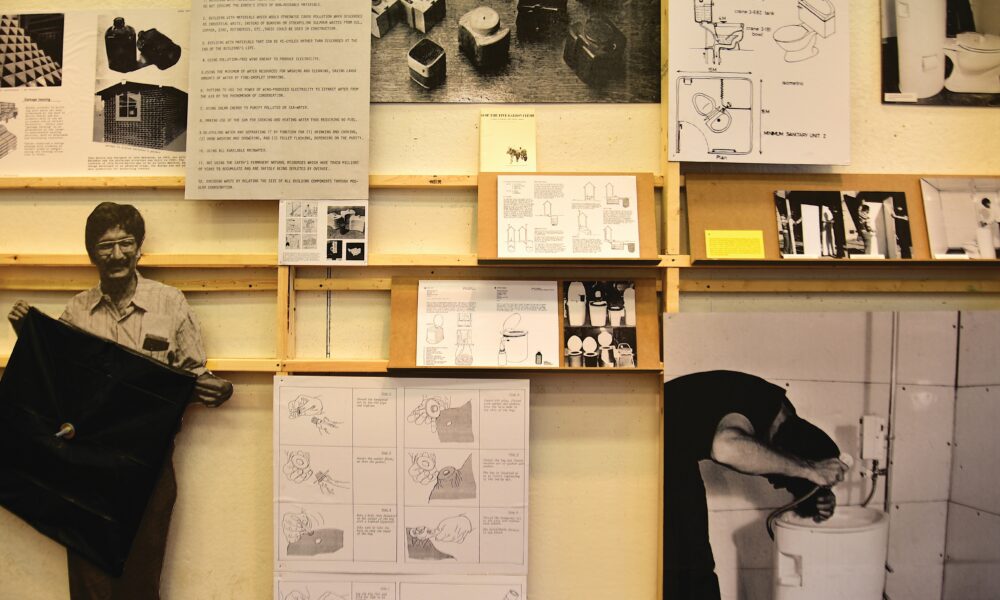As the global housing crisis worsens, a revolutionary project spearheaded by the Minimum Cost Housing Group (MCHG) at McGill’s Peter Guo-hua Fu School of Architecture promises to reverse the narrative. “Design for the Global Majority,” an exhibition happening on campus from Oct. 2 to 27, showcases affordable and sustainable housing designs tailored to the needs of low-resource communities across the developing world and beyond.
The Tribune attended the opening keynote lecture on Oct. 19, 2023, Thousand Million Clients, by Vikram Bhatt, Professor Emeritus at McGill and former Director of the MCHG, in conversation with Ipek Türeli, Associate Professor at McGill and Canada Research Chair in Architectures of Spatial Justice, and Robert Mellin, retired Professor in McGill’s School of Architecture.
“According to the United Nations sustainable development goals observatory statistics, between 2014 and 2018, the population of the urban poor grew from 23 per cent to almost 25 per cent […] the number is bigger than 100 million, ” Bhatt said during the lecture. “And by 2030, it’s assumed that [the global urban population] will be six billion, and six out of 10 people will be living in the cities. It’s critical, I think, that architects, urban designers, and planners engage in this.”
Türeli acknowledged the rising issues in urban settlements and drew connections to the group’s “Design for the Global Majority” project across five thematic areas: Upcycle, Harness, Plan, Leverage, and Hack.
The MCHG has concentrated on experiments with low-cost building materials and repurposing waste, aiming to develop ecological autonomous housing for under-resourced populations, which are sustainable because of their independent energy and water supplies. The extensive research on upcycling materials such as sulfur concrete eventually led the group to a new goal: Reducing the operational and environmental costs of buildings while also resolving household challenges of sanitation. To this end, the MCHG built and tested eight solar still variations, devices that harness solar energy to purify water through evaporation and condensation.
Moreover, in building the ECOL House, one of MCHG’s first major operations, the group harnessed natural resources to resolve water and power issues in a decentralized, small-scale, and low-cost approach. They collected rainwater for showering and hand-washing, and converted the used, dirty water back into drinking water using the rooftop solar stills they designed. As for electricity, they harnessed wind energy by installing a wind machine next to the house, which provides electricity for radios, pumps, motors, and lights.
“Stop the Five Gallon Flush!” is one way that the MCHG has tackled household sanitation challenges with an ethic of environmental conservation. In 1973, when Bhatt was a McGill student, the MCHG was already engaged in investigating alternatives to the unsustainable standard flush toilet model.
“Do we want to send one litre of solid waste with 20 litres of water every time we flush? Should we not be looking at alternate systems? And there was tremendous interest in this,” Bhatt recounted. “Suddenly, these ideas which were there [became] very successful.”
The MCHG designed a minimal freestanding sanitary unit, reducing water waste by combining the toilet and the washbasin. The publication, “Stop the Five Gallon Flush!”, catalogued the group’s various designs of alternative waste disposal systems, selling 5,000 copies and becoming an exemplar within the field of water conservation. Additionally, the MCHG’s various designs in the early 1970s had caught the eye of international organizations such as the United States Agency for International Development (USAID) and the World Bank, seeking out the group as they looked for low-cost infrastructure and sanitation solutions.
Indeed, the MCHG’s work is not merely limited to regions perceived as the developing world. “Design for the Global Majority” is not simply a project about housing, agriculture, and urban sanitation, but a sustainable housing solution to the ever-increasing urban population problem in Canada and around the globe. With continued research, development, and support, the designs and methodologies pioneered by the MCHG team have the potential to redefine the landscape of affordable housing worldwide.






